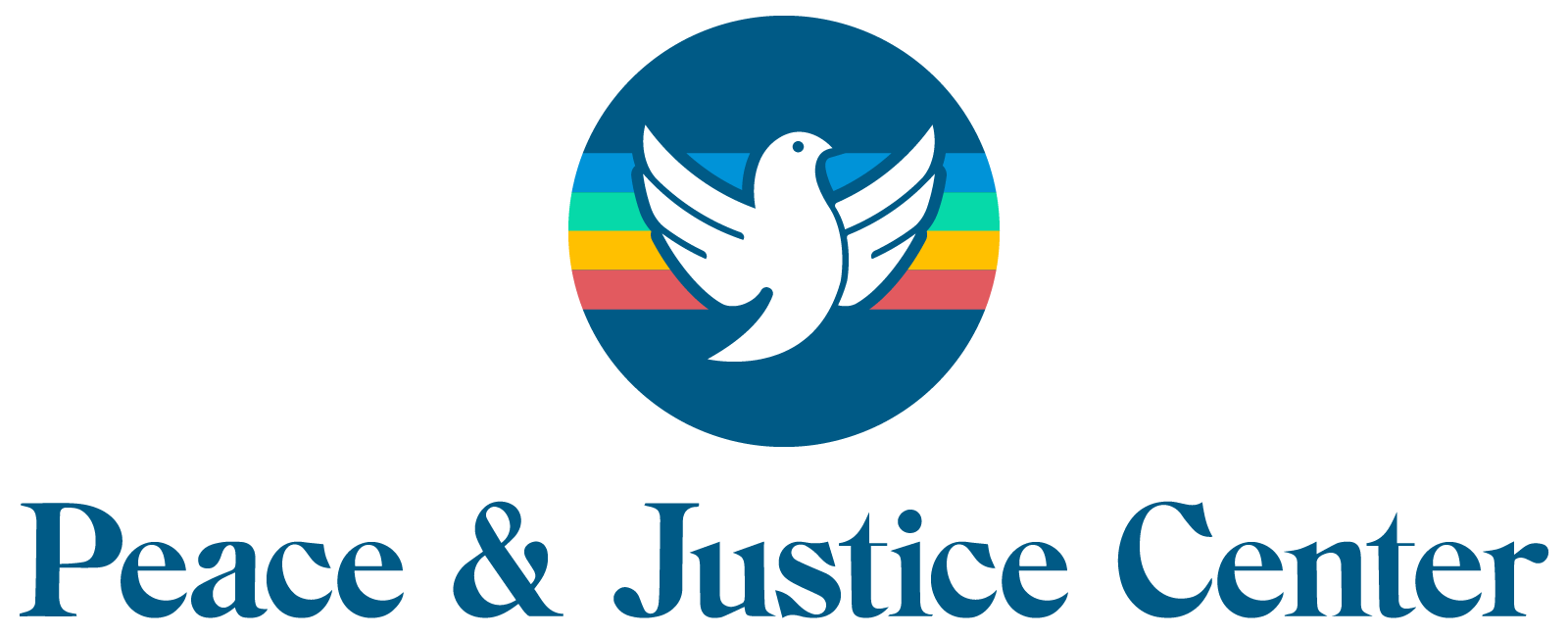When heinous acts of racist violence happen elsewhere, many well-intended people use that as evidence that there isn’t racism in Vermont. The staff and board of the Peace & Justice Center disagree. There is more to discrimination than just the dramatic acts of violence that saturate our media.
The shooting in Ferguson, Missouri, as well as both the civil unrest and the militarized police response are of deep concern to the Peace & Justice Center. Racial justice and nonviolence are at the heart of our work. We believe in and work for a more peaceful and just world, a world where parents do not need to fear their black and brown boys will be killed for no reason other than their appearance, where we recognize the benefits of diversity, and where human equality is valued. We therefore must speak out against acts of racist violence.
Simultaneously, we must respond to the more subtle acts of racism that pervade our culture and to institutional and systemic oppression. There is a phrase “death by a million cuts” which aptly reflects the hurt of racism in Vermont. The usually unconscious acts of prejudice and disrespect, the stereotypes projected, the touching of hair, the being followed in stores, the crossing of streets in avoidance, and other acts in response to people of color, are referred to as micro-aggressions. Each micro-aggression slices at those of us with brown and black skin and limits the lives of those of us who are white. Institutionalized racism includes decision making, resource allocation, policies and practices that perpetuate privilege and access to some and not to others. These systems of oppression are also hard for those in power to see. To continue the metaphor, institutionalized racism create an environment in which the wounds cut more deeply and heal more slowly even when there is no singular act of violence that explains the hurt.
We live in a highly racialized society. When white people refer dismissively to the “race card,” as a defense against what a person of color perceives as racism, another cut is made. While some claim colorblindness, we believe this is a myth. Saying skin color is not seen denies a very important characteristic of a person’s identity and experience. Of course we see race and our hope is that we don’t make assumptions based on it. How could a person of color, when disrespected, not wonder if race is a contributing factor? In fact, how could anyone prove that it is not?
The death of Michael Brown and the ensuing violence is indeed horrific. While we speak out against the abuse of power in Ferguson and send messages of support and comfort to his family and friends, we hope all of us, people of color and aspiring white allies alike, will also turn our attention to the racism and white privilege here in Vermont.
The Peace & Justice Center is hosting a couple of racial justice-related events. They are not specific to the killing of Michael Brown and were scheduled prior to the tragedy. However they are not unrelated.
“The Spies of Mississippi,” a documentary about the state-sponsored campaign to Defeat Civil Rights in the 1960s, will be shown for free at the Block Gallery in Winooski on Tuesday, August 26th at 7:00 with an informal discussion after.
Book discussion of “The New Jim Crow: Mass Incarceration in the Age of Colorblindness,” by Michelle Alexander on Monday and Wednesday, September 22 and 24, 6:30 – 8:30 at the Peace & Justice Center. Racial profiling, disenfranchisement, & mass incarceration constitute today’s legal system for institutionalized racism, discrimination, & exclusion. Pre-registration requested. $25 fee includes book. Free for current members and volunteers.
The Peace & Justice Center board and staff send blessings and condolences to Michael Brown’s family and to all members of the Ferguson community, we join the collective voice of alarm regarding police militarization and violence, and we pledge renewed commitment to the movement for racial justice and peace in Vermont and beyond.
